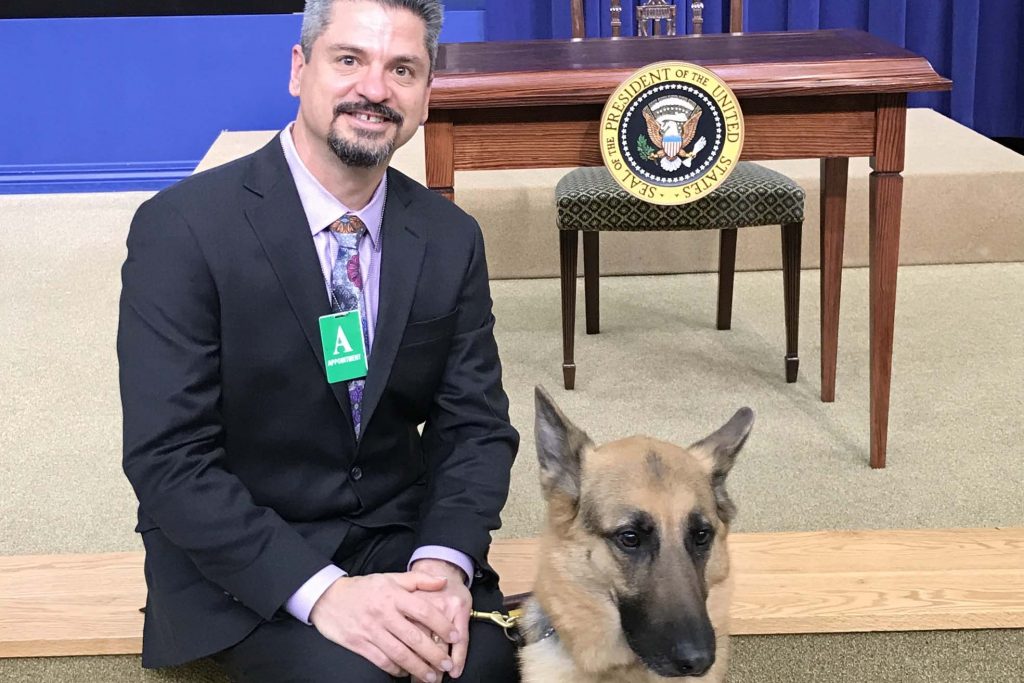Political, constitutional, and legal successes don’t come easy. Behind policies and bills coming from the corridors of Washington, DC, are complicated moving parts and convoluted back stories. Among the most inspirational of such fights you’ll find is Michael Amoruso’s.
He had a heavy hand in the passage of the Special Needs Trust Fairness Act, which sailed through the US Senate with unanimous approval and hit President Barack Obama’s desk to be signed in December of 2016. The new law allows for mentally competent individuals with disabilities to establish a special-needs trust.
It all began with a case at his first law firm, where Amoruso ’94 saw a witnesses’ significant medical malpractice court award shrink up. He was “flabbergasted,” he told the Westchester County Business Journal, upon discovering that his client—a woman with disabilities—“couldn’t sign her own document and that we had to go to the court and have them sign it” to open a special-needs trust.
From this point forward, Amoruso continued on a path of serving as a voice for the disabled and elderly. He opened a firm in 2001, Amoruso & Amoruso, that specializes in elder law and special needs cases. “I made a change,” he said, of fixing existing federal legislation around special needs trusts. What the new law essentially does is make it easier for individuals to access additional financial assistance and save money. Prior to its passage, due to political oversight and inattention, these types of trusts could only be created by a parent, grandparent, legal guardian, or a court.
It was a victory in more ways than one. Constitutionally, it eliminated unfair obstacles and constraints on disabled individuals’ personal decision-making. Politically, it was an example of common-sense lawmaking with bipartisan support, a rare thing these days.
For Amoruso, a Double Eagle who has bilateral hearing loss and a guide dog, Demitri, to help him with legal blindness, it was a deeply personal success. His entire life, he says, he has jumped through institutional hoops and shot through ceilings of expectations that people have set unfairly low as a result of judging him by his impairments.
His senior year at Boston College, he was diagnosed with a degenerative retinal condition, one that would eventually leave him blind by the age of 40 or 50. This dashed his hopes of pro golfing after school, so he pivoted towards a career in law, which led him to enroll at BC Law.
“It was tough,” he recalls, because the changes ushered in by the American with Disabilities Act had yet to come to the campus. He found himself lacking support and “took things into my own hands,” meeting with the dean and school administrators to ramp up the school’s backing of students with disabilities.
“All of us go to law school to make a difference,” Amoruso says, and he hasn’t stopped fighting for change since his days at BC. The path to get to where he is today—head of his own three-lawyer shop in Rye Brook, NY, recipient of numerous accolades, and chair of numerous New York legal organizations—was not easy or simple. Climbing the ladder was a “long process to becoming the best lawyer I could become credentially,” he explains.
With hundreds of clients and numerous other commitments, it’s hard to fathom how Amoruso has time to think about the bigger picture. At the time of our recent discussion, he had just gotten off another phone call—a two-hour strategic chat with a lobbyist in DC. His big priority in this round of national budgeting is protecting people with disabilities during the allocation and entitlement processes.
Ultimately, it seems like Amoruso will find himself in a bid for public office or working in a professorial capacity, where he can train future generations of lawyers. He sees the merits in both, but hasn’t come to a decision yet. Either way, it’s likely that in any position he finds himself in, he will continue to be a trailblazer, advocator, and fighter.


